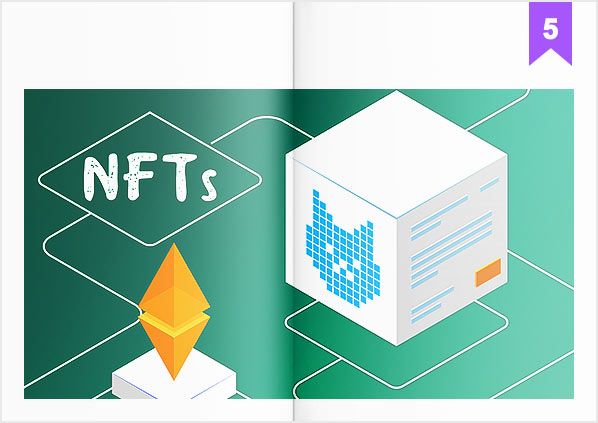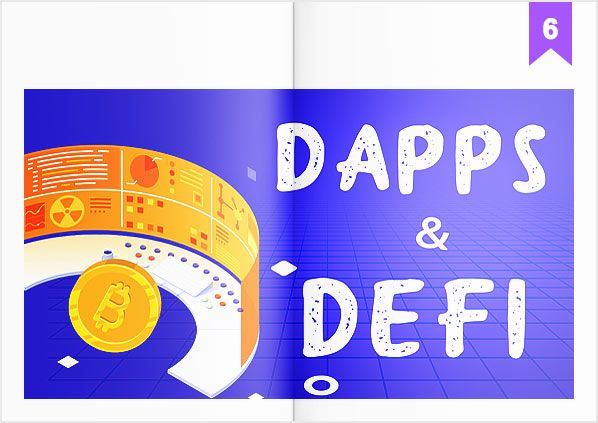Gavin Woods</strong></a>, Solidity was developed by Ethereum and its project team. This programming language is <strong>influenced</strong> by other popular programming languages such as <a href=https://www.bitdegree.org/"/crypto/learn/crypto-terms/what-is-javascript/">JavaScript, <a href=https://www.bitdegree.org/"https://en.wikipedia.org/wiki/Python_(programming_language)/" target=\"_blank\" rel=\"nofollow noindex noopener\"><strong>Python</strong></a>, and <a href=https://www.bitdegree.org/"/crypto/learn/crypto-terms/what-is-c-plus-plus/">C++./nThe <a href=https://www.bitdegree.org/"/crypto/learn/crypto-terms/what-is-ethereum-virtual-machine-evm/">Ethereum Virtual Machine (EVM)</strong></strong></a>, which serves as an abstraction layer between the executing code and the execution machine, interacts with the Solidity programming language. Though since the EVM does not directly compile low-level machine instructions called <a href=https://www.bitdegree.org/"https://en.wikipedia.org/wiki/Opcode/" target=\"_blank\" rel=\"nofollow noindex noopener\"><strong>opcodes</strong></a>, Solidity must be compiled to them manually.</p>\n<p>This programming language is <strong>simple to switch to and use</strong>, especially for individuals with prior programming experience. Solidity is statically typed, which means it checks the program's source code for type mistakes and syntactic difficulties. </p>\n<p>It supports <a href=https://www.bitdegree.org/"/crypto/learn/crypto-terms/what-is-software-library/">libraries, user-defined complex objects, and <strong>inheritance</strong>. In addition, developers are able to design new forms of complex and automated financial, gaming, auction-based, management, and other applications using Solidity.</p>\n<p>Though just like any programming language, <strong>Solidity has some issues</strong>. To begin with, since blockchains are <a href=https://www.bitdegree.org/"/crypto/learn/crypto-terms/what-is-immutable/">immutable, a smart contract that has been deployed cannot be removed or modified in any way. This means that every single line of the Solidity code must be flawless, or it is at risk of being <strong>hacked or exploited</strong>. Besides, the design of Solidity needs to be updated to meet the needs of today’s requirements since it was designed during the time when Ethereum wasn’t deployed.</p>","level":"easy","meta_title":"What is Solidity? Definition & Meaning | Crypto Wiki","meta_description":"Solidity meaning: Solidity - a programming language that is mostly used for developing smart contracts on the Ethereum blockchain.","meta_keywords":null,"language":"en","created_at":"2022-03-30T08:38:22.000000Z","updated_at":"2022-05-13T14:32:24.000000Z","preview_url":"https://www.bitdegree.org/crypto/learn/crypto-terms/what-is-solidity"},"prevSection":{"id":708,"original_id":null,"author_id":42,"translator_id":null,"title":"What is Smart Contract Audit?","slug":"what-is-smart-contract-audit","section":"S","keyword":"Smart Contract Audit","status":"published","definition":"an in-depth investigation and analysis of the code of a smart contract to find issues, errors, and security flaws.","content":"<p>A <strong>smart contract audit</strong> is a comprehensive analysis of a <a href=https://www.bitdegree.org/"/crypto/learn/crypto-terms/what-is-smart-contract/">smart contract's</strong></a> code to identify bugs, errors, or security flaws, as well as <strong>possible fixes</strong>.</p>\n<p>Since most smart contracts handle large sums of money, the audits are essential, because a single error or vulnerability can result in significant losses. More specifically, the users and stakeholders of the <a href=https://www.bitdegree.org/"/crypto/learn/crypto-terms/what-are-decentralized-applications-dapps/">decentralized application</strong></a> in question can be <strong>at risk of losing all of their assets</strong>.</p>\n<p>Smart contract audits are pretty complex because smart contracts frequently interact with one another. For this reason, the system checks are frequently expanded to include additional smart contracts involved in <strong>other transactions</strong>, even the ones in which a certain smart contract is not directly involved.</p>\n<p>The recommendations of the auditors are announced to the project team <strong>ahead of time</strong>, and their responses are included in the final report. Teams are eager to obtain an audit in order to gain user confidence and improve the project's credibility because it is regarded as <strong>a symbol of authenticity and integrity</strong>. </p>\n<p>Typically, audits are carried out in phases:</p>\n<ul>\n<li>The auditors and the team agree on the specifications (purpose, architecture, design, etc.) and the scope of the audit.</li>\n<li>The auditors perform unit tests (testing individual functions) and integration tests (testing larger parts).</li>\n<li>The auditors <strong>check for contract vulnerabilities</strong> using analysis tools and automated bug detection.</li>\n<li>The auditors examine the code manually to determine the developer's intentions and interpret the findings in that context.</li>\n<li>The team's findings and solutions are documented in <strong>the report</strong>.</li>\n</ul>\n<p><em>Why are smart contract audits so important? </em>For instance, the <a href=https://www.bitdegree.org/"https://www.bitdegree.org/crypto/buy-ethereum-eth/">Ethereum chain split in 2016 was caused by a code vulnerability exploited by an attacker. The attacker was able to drain millions of dollars worth of ETH because of a <strong>simple bug</strong>. This eventually resulted in disagreements in the community and a <a href=https://www.bitdegree.org/"/crypto/learn/crypto-terms/what-is-hard-fork-blockchain/">hard fork</strong></a> because they couldn’t decide whether to forcibly return the assets or not.</p>\n<p>In the booming <a href=https://www.bitdegree.org/"/crypto/learn/crypto-terms/what-is-defi/">DeFi business, where <strong>bug-filled smart contracts are frequently rushed out to suit investor demand</strong>, smart contract audits are becoming extremely vital. Harvest, bZx, Yam Finance, <strong>Eminence</strong>, and Balancer are just a few of the million-dollar hacks that have occurred in 2020 because of various bugs in smart contracts.</p>","level":"medium","meta_title":"What is Smart Contract Audit? Definition & Meaning | Crypto Wiki","meta_description":"Smart Contract Audit meaning: Smart Contract Audit - an in-depth investigation and analysis of the code of a smart contract to find issues, errors, and security flaws.","meta_keywords":null,"language":"en","created_at":"2022-03-30T07:12:04.000000Z","updated_at":"2022-05-13T14:32:24.000000Z","preview_url":"https://www.bitdegree.org/crypto/learn/crypto-terms/what-is-smart-contract-audit"},"currentChapter":"S","currentSection":"what-is-soft-fork-blockchain","chapterTitle":"S","readingLevel":"easy"},"url":"/crypto/learn/crypto-terms/what-is-soft-fork-blockchain","version":"cdd198d50cbe5c9c21c9329d7c096ffc"}" class="container-fluid d-flex crypto-book p-0"> Crypto Terms: Letter S
What is Soft Fork (Blockchain)?
Soft Fork (Blockchain) MEANING:
Soft Fork (Blockchain) -
the modifications made to a blockchain in order to add or remove functionality without initiating any fundamental structural changes.
Let's find out Soft Fork (Blockchain) meaning, definition in crypto,
what is Soft Fork (Blockchain),
and all other detailed facts.
Soft fork refers to making modifications to a blockchain in order to add or remove functionality without making any fundamental structural changes.
For nodes that decide to follow the new consensus rules, prior transactions or blocks are made invalid. Though for the nodes that continue to follow the old consensus rules, new transactions and blocks are left valid. Thus, a soft fork is backward-compatible, which distinguishes it from the more well-known hard fork, which terminates forward compatibility for all nodes that follow old consensus rules.
One of the most important aspects of crypto soft forks is that they don't require all miners on the network to agree to run the new code, only the majority of miners need to do that. This enables network upgrades to be completed more quickly and without generating a major schism in the community.
A soft fork could also be the result of a miner's error if old nodes break new regulations that they are unaware of. A hard fork is the only way to reverse a soft fork.
The blockchains of Bitcoin and Ethereum have used multiple soft forks over the years to upgrade the network, solve faults, or add functionality. This helped them avoid the more contentious hard fork option that requires compelling all miners to agree on new consensus rules, which risks dividing the network.
An example of a soft fork would be Ethereum’s Metropolis-Byzantium fork which functioned like an operating system upgrade.









